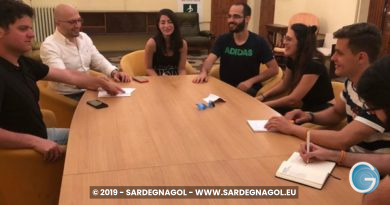Falsifikavimo taisyklė melagienoms atpažinti.
Kaip skaitmeninis pilietis, turėtumėte žinoti, kokią informaciją vartojate ir kaip atskirti tikrąją nuo klaidingos. Šiandieninis pasaulis pilnas visiškai melagingų „naujienų“, kurias skelbia dėl dėmesio besivaržantys veikėjai. Todėl tikrajai informacijai atpažinti turi būti įmanoma sugalvoti įrodymų, kurie patvirtintų, kad teiginys yra klaidingas.
Suklastoti teiginiai gali būti įrodyti melagingais įrodymais. Jei teiginys yra klaidingas, įrodymai jį paneigs. Jei tai tiesa, įrodymai negalės to paneigti. Moksliniai teiginiai turi būti falsifikuoti (įrodoma, kad hipotezė yra neteisinga). Iš tiesų, mokslo procesas apima bandymą paneigti falsifikuojamus teiginius. Jei informacija atlaiko bandymus paneigti, mes labiau pagrįstai sutinkame su ja. Priešingai, nesuklastoti teiginiai negali būti įrodyti melagingais įrodymais. Jie gali būti teisingi, bet kadangi nėra jokio būdo nauodoti įrodymus teiginiui patikrinti, bet kokie teiginį patvirtinantys „įrodymai“ yra nenaudingi. Nefalsifikuoti teiginiai iš esmės yra atsparūs įrodymams.
Trijų tipų teiginiai yra nepaneigiami: subjektyvūs teiginiai: teiginiai, pagrįsti asmeninėmis nuostatomis, nuomonėmis, vertybėmis, etika, morale, jausmais ir sprendimais. Pavyzdžiui, galiu manyti, kad katės yra geriausi naminiai gyvūnai, tačiau šis įsitikinimas nėra falsifikuojamas, nesvarbu, kiek faktų ar įrodymų naudoju jiems pateisinti. Antra, antgamtiniai teiginiai: teiginiai, apie tokias esybes kaip dievai ir dvasios, neaiškios energijos ir jėgos bei magiški žmogaus gebėjimai, pvz., psichinės galios. Pagal apibrėžimą antgamtiškumas viršija natūralumą, todėl nėra falsifikuojamas. Tai nereiškia, kad šie teiginiai būtinai yra klaidingi (arba teisingi!). Pavyzdžiui, vadinamoji „energetinė medicina“, tokia kaip reiki ir akupunktūra, remiasi teiginiu, kad ligas sukelia išbalansuoti energijos laukai, kuriuos galima pakoreguoti taip, kad būtų atkurta sveikata. Tačiau šie energijos laukai negali būti aptikti ir neatitinka jokių žinomų energijos formų. Tačiau yra atvejų, kai antgamtiniai teiginiai gali būti suklastoti. Pirma, jei aiškiaregis teigia, kad gali kokiu nors būdu paveikti gamtos pasaulį, pavyzdžiui, judinti / lenkti objektus arba skaityti mintis, mes galime patikrinti ekstrasenso gebėjimus tam tikromis sąlygomis. Antra, galima patikrinti tvirtinimus apie antgamtinius įvykius, kurie palieka fizinius įrodymus. Pavyzdžiui, jaunosios žemės kreacionistai teigia, kad Didysis kanjonas susiformavo per Nojaus potvynį maždaug prieš 4000 metų. Pasaulinis potvynis paliktų po savęs geologinių įrodymų, tokių kaip didžiulės erozijos ypatybės ir nuosėdų nuosėdos. Nenuostabu, kad tokių įrodymų trūkumas paneigia šį teiginį. Tačiau net jei įrodymai rodė pasaulinį potvynį tik prieš kelis tūkstančius metų, vis tiek negalėtume suklastoti teiginio, kad Dievas buvo to priežastis. Paskutinis, neaiškūs teiginiai: teiginiai, kurie yra neapibrėžti arba neaiškūs. Jūsų šios dienos horoskopas sako: „Šiandien gera diena svajoti. Venkite priimti bet kokius svarbius sprendimus. Dienos energija gali pritraukti naujų žmonių į jūsų gyvenimą.” Kadangi šiame horoskope vartojami dviprasmiški ir neaiškūs terminai, tokie kaip svajonės, svarbu ir gali, jis nepateikia jokių konkrečių, išmatuojamų prognozių. Dar daugiau, kadangi tai atvira interpretacijai, galite įtikinti save, kad tai atitinka tai, kas nutiko jums per dieną, ypač jei visą dieną ieškojote „įrodymų“. Taip pat daugelis alternatyvios medicinos teiginių yra tikslingai neaiškūs. Pavyzdžiui, ant papildo buteliuko rašoma, kad jis „stiprina imuninę sistemą“, arba chiropraktikos reklamoje teigiama, kad „mažina nuovargį“. Nors šie plataus masto teiginiai iš esmės yra beprasmiai dėl savo dviprasmiškumo, vartotojai dažnai juos klaidingai interpretuoja ir daro klaidingą išvadą, kad produktai yra veiksmingi.
Falsifikavimo taisyklė iš esmės apibandinama taip: įrodymai yra svarbūs, tad netikėkite viskuo, ką matote internete. Ir niekada nemanykite, kad teiginys yra teisingas, nes negalima įrodyti, kad jis neteisingas.
Falsification rule for identifying lies.
As a digital citizen, you should be aware of what information you consume and how to distinguish the real from the fake. Today’s world is full of completely fake “news” published by actors vying for attention. Therefore, in order to identify the true information, it must be possible to come up with evidence to prove that the statement is false.
Falsifiable claims can be proven by false evidence. If the statement is false, the evidence will disprove it. If this is true, the evidence will not be able to disprove it. Scientific statements must be falsified (the hypothesis must be proven to be wrong). Indeed, the scientific process involves trying to disprove falsifiable propositions. If information withstands attempts at refutation, we are more likely to accept it. On the contrary, unfalsifiable claims cannot be proven by false evidence. They may be true, but since there is no way to use evidence to verify the claim, any “evidence” that supports the claim is useless. Unfalsifiable claims are inherently proof-resistant.
Tree types of propositions are irrefutable: personal attitudes, opinions, values, ethics, morals, feelings, and judgments are all examples of subjective statements. For example, I may believe that cats are the best pets, but this belief is not falsifiable no matter how many facts or evidence I use to justify it. Second, supernatural claims: Claims about supernatural entities like gods and spirits, enigmatic energies and forces, and magical human abilities like psychic powers. By definition, the supernatural transcends the natural and is therefore not falsifiable. This does not mean that these statements are necessarily false (or true!). For example, so-called “energetic medicine” such as Reiki and acupuncture is based on the proposition that disease is caused by imbalanced energy fields that can be adjusted to restore health. However, these energy fields cannot be detected and do not correspond to any known forms of energy. However, there are cases where supernatural claims can be falsified. First, if a psychic claims to be able to influence the natural world in some way, such as moving or bending objects or reading minds, we can test the psychic abilities under certain conditions. Second, claims of supernatural events that leave physical evidence can be verified. For example, young-earth creationists claim that the Grand Canyon was formed during Noah’s flood about 4,000 years ago. A global flood would leave behind geological evidence such as massive erosion features and sedimentary deposits. Not surprisingly, the lack of such evidence belies this claim. But even if the evidence pointed to a global flood only a few thousand years ago, we still couldn’t falsify the claim that God was the cause. The last, vague statements: statements that are ambiguous or ambiguous. Your horoscope for today says: “Today is a good day to dream. Avoid making any important decisions. The energy of the day can attract new people into your life. ” Because this horoscope uses ambiguous and vague terms such as dreams, important and can, it does not provide any concrete, measurable predictions. What’s more, because it’s open to interpretation, you can convince yourself that it’s consistent with what happened to you during the day, especially if you’ve been looking for “evidence” all day. Likewise, many alternative medicine claims are purposefully vague. For example, a supplement bottle says it “boosts the immune system,” or a chiropractic ad says it “reduces fatigue.” Although these broad claims are largely meaningless due to their ambiguity, consumers often misinterpret them and falsely conclude that the products are effective.
The falsification rule basically boils down to this: evidence counts, so don’t believe everything you see online. And never assume something is true simply because it cannot be proven false.
foto Mohamed Hassan from Pixabay




